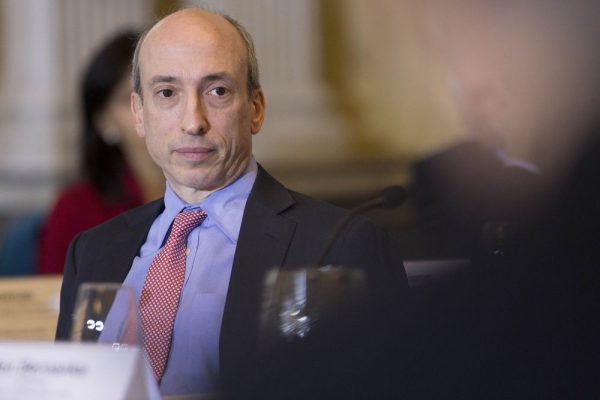- Introduction
- Japanese 2020 regulatory crypto asset changes
- Overview of Japan’s crypto-asset legislation
3.1 Payment Services Act (PSA)
3.2 Financial Instruments and Exchange Act (FIEA)
3.3. What are electronically recorded transferable rights (ERTRs) - Who are Japan’s crypto asset regulators?
4.1 Financial Services Agency of Japan (JFSA)
4.2 Japan Financial Intelligence Center (JAFIC)
4.3 FATF and APG (AML/CFT) - Japan’s Self-Regulatory Organizations (SROs)
4.1 Japan Virtual and Crypto Asset Exchange Association (JVCEA)
4.2 Japan Security Token Offering Association (JSTOA) - Licensed crypto asset exchanges in Japan
6.1 Registered domestic and foreign exchanges
6.2 Japanese exchanges and the FATF Travel Rule - A brief history of Japan’s virtual asset regulation (2014-2020)
- Conclusion- Japanese crypto regulation beyond 2020
About CoolBitX and Sygna Bridge
Quick Facts:
| Definition of virtual assets | “Crypto-assets” |
| Legal status of virtual assets | Legal tender (Bitcoin) |
| Cryptocurrency exchanges | Crypto-asset Exchange Service Providers (CAESPs). Previously Virtual Currency Exchange Platforms (VCEPS) |
| Main crypto legislation | Payment Services Act (PSA) and the Financial Instruments and Exchange Act (FIEA) |
| Financial Regulator | Financial Services Agency of Japan (JFSA) |
| Financial Intelligence Unit | Japan Financial Intelligence Center (JAFIC) |
| FATF-style regional body | Asia-Pacific Group on Money Laundering (APG) |
| Tax Status | Learn more |
1. Introduction
Digital innovation is ingrained in the psyche of Japan. This has made the Land of the Rising Sun a perfect incubator for the exponential growth in the value and popularity of cryptocurrencies over the last decade.
Consequently, many of the most significant crypto highs and lows in virtual asset history, which includes the most devastating exchange hacks ( Mt. Gox and Coincheck), have all come from this dynamic nation in recent years.
For example, Japan was the first country in the world to legally define “virtual currency”. Japan also requires exchanges to be licensed as crypto asset service providers (previously called virtual currency exchange platforms) to offer crypto-related services to Japanese residents.
Why is the regulation of cryptocurrencies so highly evolved then in Japan when compared with the rest of the world?
Well, for starters, it helps that both regulators and their crypto industry have taken past mistakes in their stride and are pulling in the same direction towards the promised land of mass adoption.
Japan’s leading financial regulator, the Financial Services Agency (JFSA), works closely with the Japanese Virtual Currency Exchange Association (JVCEA), the country’s official self-regulated organization (SRO). At the end of April 2020, the FSA recognized another SRO, the Japan STO Association, to target crypto securities, specifically security token offerings (STOs).
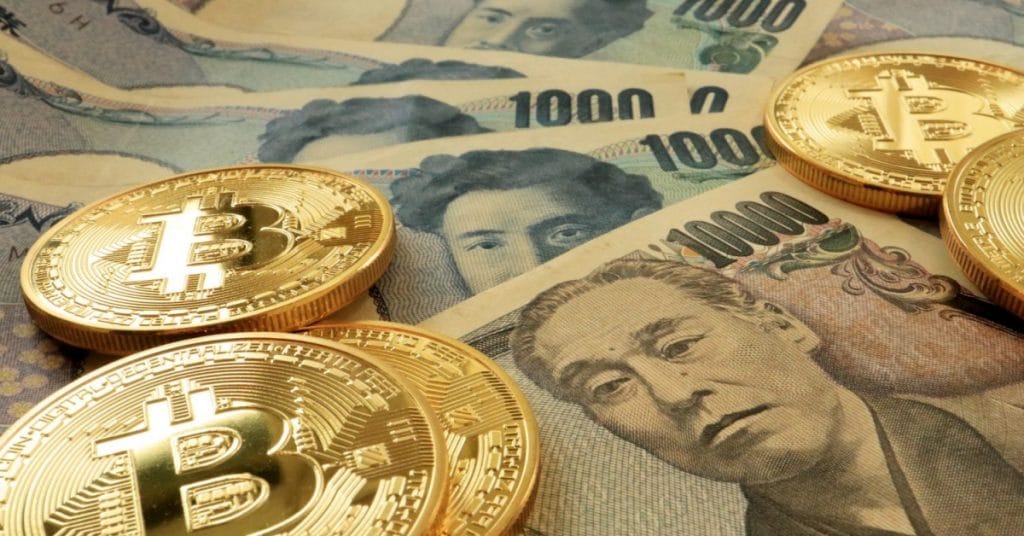
On 1 May 2020, Japan began enforcing pioneering new crypto asset-facing legislation. The JFSA’s most recent actions at first resembled unassailable obstacles for all but the most deep-pocketed exchanges.
Conversely though, this enhanced regulatory clarity presents significant opportunities for the crypto industry both in Japan and around the world. It establishes common ground with the traditional financial sector, and importantly, provides a clear blueprint for other countries to follow.
As CoolBitX CEO Michael Ou explained in a recent CoinTelegraph interview:
“It is expected that the soon-to-be-published mutual evaluation report for Japan will also focus on compliance of VASPs with the FATF Recommendations. It would be helpful to other countries if the regulators in Japan, a country seen by many as being at the forefront of digital asset adoption, could demonstrate the measures employed to ensure VASPs comply with FATF’s recommendations.”
Michael Ou, CoolBitX and Sygna founder
In this guide, we’ll take a detailed overview of the virtual asset regulatory landscape in Japan in 2020 and the incremental changes that created it.
We will specifically look at Japanese crypto-facing legislation, government regulators and self-regulatory organizations (SRO) that govern Japanese virtual asset businesses, and explain how they impact crypto asset service providers in Japan. Finally, we’ll also look back at the history and evolution of Japanese crypto regulation since the first Mt. Gox hack in 2011.
2. New 2020 PSA and FIEA regulatory changes
In May 2019, Japan’s House of Representatives ( the lower house of Japan’s National Diet) approved new amendments to its Payment Services Act (PSA) and Financial Instruments and Exchange Act (FIEA) that came into effect on the 1st of May 2020. (Read more in full here)
The most important PSA and FIEA changes are the following:
- The term “virtual currency” has now been replaced by “crypto-asset” when referring to digital assets.
- Crypto Asset Service Providers (CASPs/CAESPs) must manage their customers’ funds separately from their own cash flows, and find a third-party operator to take custody of users’ money.
- Crypto custodians are now subject to tougher restrictions and must also register with the JFSA, even if they don’t provide exchange services.
- Limitations are to be placed on derivative products like margin trading
- It is now a punishable offense to spread false rumors about a cryptocurrency
- Privacy coins are still not covered, but further changes are expected for later this year.
Why did Japan update the PSA and FIEA regulations?
The new legislative changes substantially tighten Japan’s current crypto regulation and serve 3 distinct purposes:
- To better protect cryptocurrency users against exchange hacks
- To create a more transparent regulatory framework
- To address the trading of crypto derivatives by putting limits on margin trading.
3. An Overview of Japanese Crypto Asset Legislation
Virtual assets in Japan are mainly regulated by two established Japanese financial laws:
| 1. Payment Services Act (PSA), A.K.A. the Act on Settlement of Funds (Act No. 59 of 2009) | 2. Financial Instruments and Exchange Act (FIEA) (Act No. 25 of 1948). |
| -The PSA regulates crypto assets, exchanges and custodians | -The FIEA regulates securities, like ERTRs (security tokens) |
3.1 What is Japan’s Payment Services Act (PSA)?
Japan’s Payment Services Act (PSA) was adopted in 2009 to force companies offering financial payment services to register, so these services could be made safer and more efficient.
Since April 2017, the Payment Services Act has applied to all cryptocurrency exchanges operating in Japan. Crypto exchanges must register with the JFSA for an operating license, provide customer due diligence procedures, keep records, improve their security, and perform other duties to ensure that the assets of their customers are secure.
Japanese virtual asset service providers (VASPs), now known as crypto asset service providers (CASPs), are also subject to both local and global anti-money laundering (AML) and counter-terrorism funding (CFT) regulations.
3.2 What is the Financial Instruments and Exchange Act (FIEA)?
The Financial Instruments and Exchange Act (Law No. 25 of 1948) applies to financial institutions, including banks, that deal with securities.
FIEA does not consider “virtual currencies” to be securities. With a new name ( “crypto-assets”) and asset class of “electronically recorded transferable rights (ERTRs), the JFSA is, however, starting to calibrate how it treats different types of digital assets.
1) What are “electronically recorded transferable rights (ERTRs)?
Under Japan’s FIEA law, electronically recorded transferable rights (“ERTRs”) are cryptocurrency tokens that are issued with the expectation of profit, such as security tokens. However, ERTRs may not be described as “crypto-assets”, which fall under the oversight of the PSA.
ERTS bring problematic crypto gray areas like initial coin offering (ICOs) and security token offerings (STOs) under the regulatory oversight of the FIEA.
STO-issued tokens are now considered to be ERTRs if they fulfill the following three criteria, according to Japanese law firm Anderson Mori & Tomotsune:
- Investors must invest cash or assets in a business
- The investors’ cash or assets are invested in the business
- Investors are entitled to dividends of profits or assets created by these investments.
These requirements, especially the “expectation of profit”, are reminiscent of the United States’ frequently quoted Howey Test and its proposed Crypto-Currency Act of 2020 draft bill that divides digital assets into 3 distinct categories: crypto-currencies, crypto-securities and crypto-commodities.
2) Restrictions on derivative-based trading
Derivative-based trading has been an increasing headache for the JFSA, as it’s mostly unregulated and poses a significant financial risk to cryptocurrency traders who are often overzealous hobbyists. Worryingly, according to the JVCEA, leveraged trading (like margin trading) made up over 80% of crypto trades in Japan between 2017 and 2018.
As a result, the SRO imposed a maximum of 4x on margin trading in 2019, which it proposed in January 2020 to lower even further, to only 2x.
4. Japan’s Crypto-Asset Regulators
It is no secret that most government-appointed financial regulators and crypto exchanges around the world don’t see eye to eye. The progressive cooperation between Japan’s Financial Services Agency and the Japan Virtual Currency Exchange Association (JVCEA), the country’s official self-regulatory organization (SRO) has played a huge role in distinguishing Japanese crypto-asset policymaking from the rest of the world in recent years.
4. 1 What is Japan’s Financial Services Agency (JFSA)?
The Financial Services Agency of Japan (JFSA) has been Japan’s primary financial regulator for the last 2 decades. Established in 1998, the JFSA was promoted to its current role by the Financial Reconstruction Commission (FRC) in 2000.
The JFSA’s primary duty is to ensure the stability of Japan’s financial system. It is therefore mandated to protect its financial institutions and investors, and by extension, combat money laundering (ML) and terrorism funding (TF), which brings virtual assets under its scope as well.
The JFSA is based in Tokyo, but has regional offices around Japan and is led by JFSA Commissioner Endō Toshihide, who reports to the Japanese government and Minister of State for Financial Services.
The JFSA also regulates the Securities and Exchange Surveillance Commission and the Certified Public Accountants and Auditing Oversight Board.
What is the purpose of Japan’s Financial Services Agency?
The Financial Services Agency must “contribute to the national welfare by securing sustainable growth of the national economy and wealth”.
The JFSA helps the Japanese government create new financial legislation and oversees the regulatory compliance processes of obligated financial institutions such as banks, electronic payment service operators, trust companies, audit firms, and more.
The JFSA inspects, evaluates, and monitors these institutions’ AML/CFT systems to help ensure they are consistent and compliant with both Japanese law and international anti-money laundering (AML) and counter-terrorism financing (CFT) guidances like the FATF’s 40 Recommendations. If needed, the JFSA can fine or even prosecute offenders and limit their business operations.
4.2 Japan Financial Intelligence Center (JAFIC)
The Japan Financial Intelligence Center (JAFIC) is the country’s official financial intelligence unit (FIU), tasked with enforcing financial laws and combating money laundering and terrorism funding.
It does this by collecting, organizing, and analyzing suspicious transaction reports (STRs) that are submitted by financial institutions, and this sharing this information and their conclusions with the Japanese law enforcement and foreign FIUs.
JAFIC was established by Japan’s National Police Agency in 2007 and is also a member of the Egmont Group, a global organization that counts 164 FIUs as members.
4.3 Foreign regulators: The FATF and APG
The Financial Action Task Force (FATF) is the G20-appointed global authority on AML/CFT regulation, and turned its full attention to virtual assets in late 2018.
While they have no direct jurisdiction over Japan and their 40 Recommendations are not legally binding, the FATF exerts immense political pressure over their 200+ member countries, and Japan is no exception.
Japan is a founding FATF member and also belongs to the powerful Asia-Pacific Group on Money Laundering (APG), a powerful FATF-style regional body (FSRB) that helps member countries to implement FATF guidelines and also mutually evaluate their efforts.
How the JFSA and FATF regulate crypto together
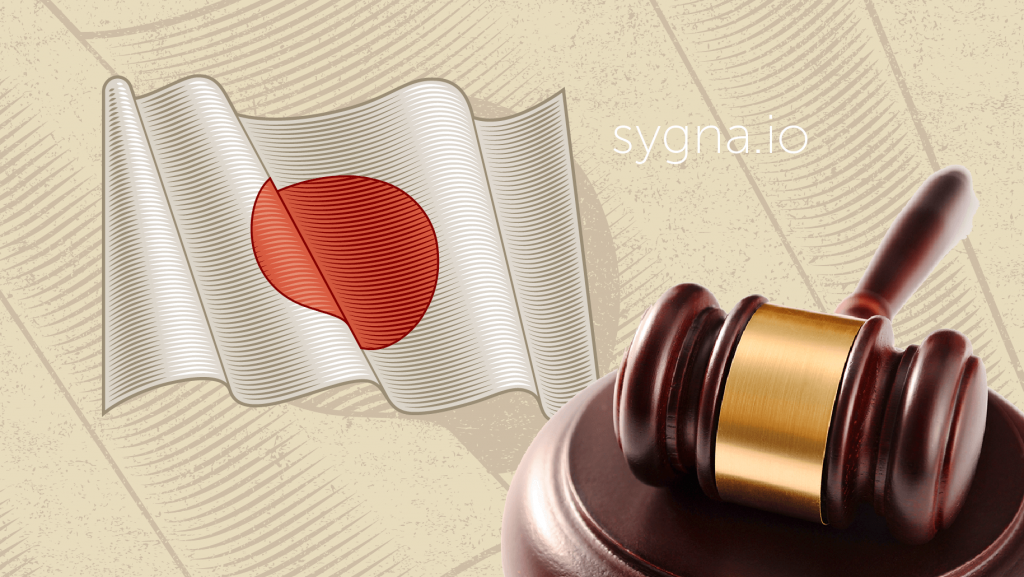
As a respected member lauded for its technological prowess, Japan plays a vital role in the progressive regulation of virtual assets.
For example, the JFSA requires crypto exchanges to register for licenses and works with its self-regulatory organization (JVCEA) to ensure virtual asset service providers (VASPs) are on board with the latest regulations like the FATF R.16 Travel Rule.
In 2019 the FATF and APG conducted their Fourth Round of Joint Mutual Evaluations of Japan with both document-based and on-site assessments of how well Japan adheres to the FATF Standards.
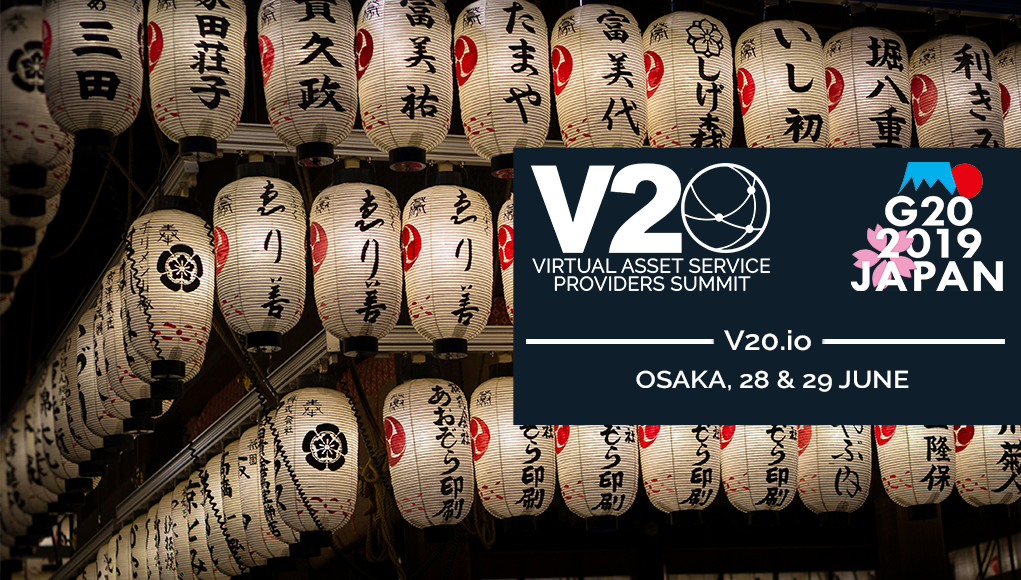
Both the V20 (for exchanges) and G20 summits were also held simultaneously in Osaka last year.
The FATF will give their feedback during its June 2020 plenary, (contingent on the current COVID-19 pandemic).
How Japan’s FSA makes financial institutions FATF-compliant
The JFSA works closely with its financial institutions to ensure they are compliant with regulations and prompts them to:
- take a risk-based approach (RBA) as necessary, such as with virtual assets.
- implement thorough Know-Your-Customer (KYC) screening procedures for sanctioned entities and politically exposed persons (PEP)
- appoint a compliance officer (CO) to manage their AML compliance systems
The JFSA also keeps its financial institutions abreast of AML/CFT regulations by publishing a detailed Weekly Review newsletter of its latest legal actions, as well as issuing Supervision and Inspection Guidelines for every financial institution type.
5. Japan’s Crypto Self-Regulatory Organizations
Japan’s crypto industry takes an active role in how virtual assets are regulated in the Land of the Rising Sun. The Japan Virtual Currency Exchange Association (JVCEA) was Japan’s only recognized self-regulatory organization (SRO) for cryptocurrency assets until April 2020. Its president is Mr. Tateyasu Okuyama.
It was renamed in 2020 to the Japan Virtual and Crypto Assets Exchange Association (some media outlets previously reported its new name as the Virtual Currency Exchange Business Association).

The JVCEA was joined in April 2020 by the Japan Security Token Association as the only JFSA-recognized SROs in the country. This is a direct result of the new FIEA updates impacting security token offerings.
5.1 What is the Japan Virtual and Crypto Assets Exchange Association (JVCEA)?
Formerly known as the Japan Virtual Currency Exchange Association until this year, the Japan Virtual and Crypto Assets Exchange Association (JVCEA) was established in April 2018 in the aftermath of a devastating exchange hack in January 2018, where Japanese exchange Coincheck lost $534 million NEM tokens. Initially, the JVCEA only assessed the security of crypto-asset exchanges.
However, in August that year, the Zaif exchange lost $60million in digital assets and led to the JVCEA also issuing restrictive new regulations for “hot wallets”, ie. crypto wallets accessible through the internet.
Zaif’s breach proved to be the final straw. It was clear to both regulators and exchanges that something had to be done to stop exchange hacks that dated back to the Mt. Gox hacks in 2011 and 2014.
On 24 October 2018, the Financial Services Agency (JFSA) formally recognized the JVCEA as an official SRO under its Payment Services Act (PSA).
This was done to help connect government regulators with exchanges in order to better protect the crypto investors and instill the crypto market with trust.
As a senior Japanese official put it at the time:
“It’s a very fast-moving industry. It’s better for experts to make rules in a timely manner than bureaucrats.”
The JVCEA’s mandate
The JFSA has authorized the JVCEA to issue and enforce crypto-related regulations and rules for Japanese virtual asset service providers (VASPs). These regulations are often much stricter than official Japanese laws, due to the associated money laundering risks that come with virtual assets.
Importantly, all Japanese exchanges are expected to follow the JVCEA’s guidelines, whether they are registered members or not.
Which Japanese exchanges are part of the JVCEA?
As of May 2020, all 23 JFSA-licensed crypto exchanges in Japan are registered “Class 1” members of the JVCEA, while not-yet licensed exchanges like Coinbase Japan and Wirex Japan are affiliated as “Class 2” members. Here is an updated list of the JVCEA’s current members.
The JVCEA does extend membership to crypto exchanges (like Coinbase) who are not yet licensed with the JFSA, as long as their registrations are deemed to be in the process of consideration by the JFSA.
5.2 What is the Japan Security Token Offering Association (JSTOA)?
Following the 2019 changes in the FIEA which took effect in May 2020, the Japan Security Token Offering Association (JSTOA) was officially recognized by the Japan Financial Services Agency.
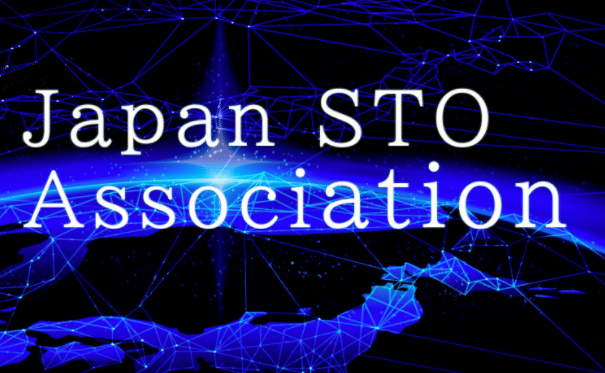
This came after the JSTOA revised and reformulated its articles of incorporation, business and self-regulation rules to receive certification.
The Japan STO Association has a clear mandate that is distinctly different from that of the JVCEA. While the JVCEA deals with exchanges, JSTOA targets crowdfunded projects such as token offerings, ensuring they all comply with the FIEA’s new regulations for STOs and electronically recorded transferable rights (ERTRs).
The STO market in Japan is poised for rapid growth in 2020 and beyond, and the JFSA wants to nurture and not stifle its expansion. Consequently, a number of the most prominent licensed CASPs in the country are eager to build out this new sector after having received regulatory clarity from the amended FIEA.
6. Licensed Japanese Crypto Asset Exchanges in 2020
Despite the tough regulatory process required to gain a crypto exchange license in Japan, the new regulations announced in 2019 didn’t seem to act as deterring barriers of entry.
In fact, the clearer regulatory requirements have attracted more exchanges, many of them from corporate giants like Line (who received their license in September 2019). By July 2019, over 110 crypto exchanges were reportedly filing applications for a license.
6.1 Licensed exchanges in Japan
There are currently 23 licensed exchanges registered with the JFSA (see this document for a list)
Local exchanges
Local VASPs must register with JFSA for a license (foreign exchanges must also be licensed in their countries) and must be incorporated as a stock company, with a minimum of 10 million Japanese yen (JPY) in capital. Critically, to mitigate hack risks to users, an exchange’s net assets must always be more than customer funds stored in the exchange’s hot wallet.
Foreign-operated crypto exchanges in Japan
At present, none of the 23 licensed exchanges in Japan are foreign-based, as it’s been an extremely difficult process to fulfill all the JFSA’s criteria. For example, San Francisco-based OKCoin had to establish a separate Japanese subsidiary to gain its local operating license.
Foreign-based exchanges are required by law to be licensed in both Japan and their home country. This presents a problem as almost no countries have regulatory frameworks in place that can govern virtual assets to Japanese standards.
Japanese law firm So & Sato feels that currently, only U.S. exchanges really stand a chance to get licensed, as American crypto regulations are both thorough and properly enforced, for example, the BSA Travel Rule by FinCEN.
With the FATF travel rule now being implemented by countries and VASPs worldwide, and new regulations like AMLD5 affecting European exchanges in 2020, we can expect the JFSA to gradually accommodate more compliant exchanges in the future.
6.2 Japanese exchanges and the FATF Travel Rule
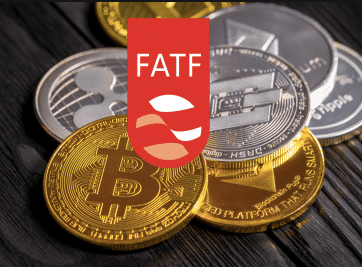
The JFSA’s 2019 amendments were influenced by the updating of the FATF Standards in June 2019, where a newly amended Recommendation 16 put the onus on member countries like Japan to ensure that virtual asset service providers (VASPs) in their countries adhere to the so-called “FATF Travel Rule”, sharing beneficiary and originator transmittal data between each other.
7. A brief history of Japanese Crypto Regulation (2014-2019)
(Read our full guide on the 2014-2020 history of Japanese cryptocurrency regulation here)
Until 2016, the cryptocurrency industry in Japan was largely unregulated in Japan. The country’s authorities, eager not to stifle innovative new technologies, kept a progressive view on virtual assets, despite the Mt.Gox hack in 2014 in which over 850,000 Bitcoin were stolen.
2016- PSA recognizes Bitcoin as legal tender
In 2016, Japan amended its Payment Services Act and Fund Settlement Law to recognize cryptocurrency like Bitcoin as legal tender for payment in Japan and require virtual currency exchange platforms (VCEPs) to register.
2017- “Deemed and quasi-exchanges” to register
All 21 exchanges that were operating in Japan before April 2017 were classified as “deemed crypto exchanges” and required to register with the FSA. By December 2017 there were 16 registered exchanges in Japan, leaving only 5 of the “deemed” exchanges not licensed yet.
2018- Hacks lead to JVCEA and new FSA rules
In 2018 CoinCheck was hacked for over $500m in NEM assets, leading to the founding of the Japanese Virtual Currency Exchange Association (JVCEA) in April 2018 to help rebuild trust in local exchanges. Then, in September, the exchange Zaif got hacked for 6000 BTC to the value of $60m.
As a result, the FSA announced it would revise and tighten its existing registration review process for its crypto exchanges, both for registered exchanges and quasi-operators.
2019 – FSA give thumbs-up, updates PSA and FIEA
By 2019, happy with the industry’s implementation of their new standards, the FSA started greenlighting new crypto-asset exchanges again. It ended 2019 with the licensing of the 21st and also last “deemed exchange”, the aptly called LastRoots exchange.
The FSA further announced in April 2019 that it would once again reform its existing legislation. These amendments came into effect on 1 May 2020.
Timeline of hacked Japanese exchanges
- 2011- Mt.Gox (2643 BTC)
- 2014 – Mt. Gox (850k BTC)
- 2018- Zaif ($60m – 6000BTC) and Coincheck ($532m in NEM)
- 2019- Bitpoint ($30m)
8. Conclusion: Japanese crypto asset regulation beyond 2020

With the commencement of the new PSA and FIEA regulatory updates on 1 May 2020, Japan’s crypto-asset regulators and self-regulatory organization JVCEA have once again created new benchmarks for the rest of the world to emulate.
As the leading country in the world to treat virtual assets like Bitcoin as legal tender, Japan will now turn its attention to regulating gray areas like derivative trading, ICOs and possibly, even exchange-traded funds (ETFs).
These continuous innovations, coupled with a controlled number of strictly vetted crypto-asset exchanges that comply with the latest global AML, CFT, and KYC requirements, augur well for the future of digital assets in the new Twenties.
Japan’s steady and often lighthanded approach provides proof that crypto regulation that iterates in palatable increments and works with the virtual asset industry and stakeholders, is the golden mean to mass adoption.
Regulatory clarity will continue to push crypto assets, in stark contrast with bloated, coronavirus-inflated fiat currency systems, as an investment not only of the 21st century but in it as well.
About CoolBitX and Sygna

CooBitX received Series B investments from two licensed Japanese CASPs in February 2020, SBI and Monex Group. Our FATF Travel Rule solution for VASPs, Sygna Bridge, is currently being implemented with exchanges in several Asian countries, including Japan.
We will soon be launching our Sygna subsidiaries for Japan and Korea to provide a better service to our clients.
